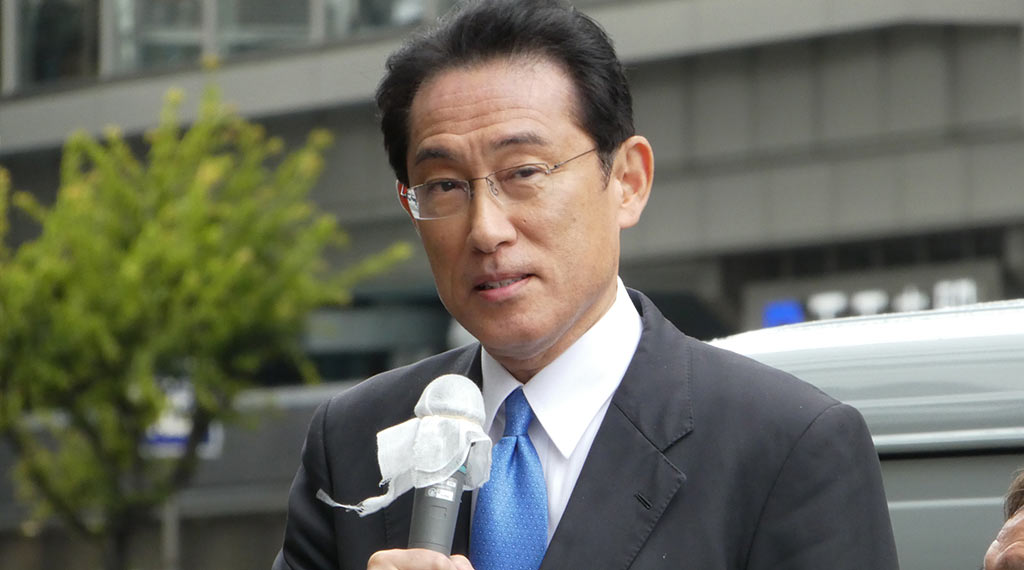View from Japan: Kishida administration ignoring Taiwan Strait tensions
Editor’s note: This analysis was originally published by the Japan Institute for National Fundamentals and is reposted here with its permission.
In early October, China dispatched numerous military aircraft near Taiwan. But Tokyo gave only a lukewarm reaction to the Chinese actions that undermined peace and stability in the Taiwan Strait, failing to demonstrate a resolute attitude. “I will say to China the things that need to be said,” Prime Minister Fumio Kishida said in his recent policy address. But the remark rings hollow. I am worried about the new administration’s future diplomacy with Beijing.
Astonishing difference between Japanese and U.S. reactions
The number of Chinese military aircraft intruding into Taiwan’s southwestern air defense identification zone (ADIZ) came to 38 on October 1, 39 on October 2 and 56 on October 4, successively hitting the highest daily record since Taiwan’s Defense Ministry began to release such data in September 2020. The Chinese actions might have been designed to counter large-scale naval drills that six countries including Japan, the United States and Britain conducted in waters southwest of Okinawa and in the South China Sea in early October. An ADIZ is established by a country to monitor foreign aircraft that may violate its territorial airspace. The zone is wider than the territorial airspace.
As tensions grew, the Taiwanese defense minister on October 6 said that Beijing would “have the ability to mount a full-scale invasion of Taiwan by 2025,” projecting a sense of crisis. In a contribution to Foreign Affairs magazine, Taiwanese President Tsai Ing-wen warned that Taiwan falling to China would trigger “catastrophic” consequences.
Naturally, Washington gave a quick reaction to the Chinese actions. “We remain concerned by the People’s Republic of China’s provocative military activity near Taiwan, which undermines regional peace and stability. We urge Beijing to cease its military, diplomatic, and economic pressure and coercion against Taiwan,” White House Press Secretary Jen Psaki said on October 4.
On October 8, The Wall Street Journal reported that U.S. special forces and Marines have engaged in secret training of Taiwanese forces. U.S. government officials leaked the information in an apparent bid to hold China in check.
Nevertheless, Japan’s Kishida administration lacks a sense of urgency. “We are aware of the actions (of Chinese military aircraft) but refrain from commenting on such developments one by one,” Chief Cabinet Secretary Hirokazu Matsuno told a press conference on October 5. “Japan consistently hopes that issues regarding Taiwan would be peacefully resolved through dialogue between parties concerned. We will continue to watch relevant developments.” I was astonished that the chief government spokesman spoke as if Japan were an outsider to any Taiwan Strait crisis, showing no sense whatsoever that the Taiwan situation is directly linked to Japan’s security.
Chinese military aircraft undermining peace and stability
Didn’t then Japanese Prime Minister Yoshihide Suga and U.S. President Joe Biden in their joint statement in April reaffirm the significance of peace and stability in the Taiwan Strait? Why did Tokyo make such official comment in the face of Chinese military actions to undermine peace and stability in the strait only six months after the joint statement?
In the policy address delivered to the parliament on October 8, Prime Minister Kishida made no reference to Taiwan. On the same day, Kishida told reporters that he took up the Senkaku Islands, Hong Kong and Xinjiang Uyghur issues in his first telephone discussions with Chinese President Xi Jinping. Sources present on the telephone conference said the prime minister touched on the Taiwan issue as well. But his failure to cite Taiwan on his own in front of reporters might inevitably be interpreted as indicating that he gives less priority to the Taiwan issue. Beijing may believe that Japan has no intent to confront China over Taiwan.
Yasushi Tomiyama is a senior research fellow and Planning Committee member at the Japan Institute for National Fundamentals and a former foreign news editor and bureau chief in Washington, D.C., London and Bangkok for the Jiji Press.
This file is licensed under the Creative Commons Attribution-Share Alike 4.0 International license.
- View from Japan: Kishida administration ignoring Taiwan Strait tensions - October 14, 2021

